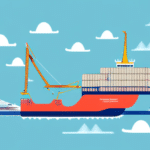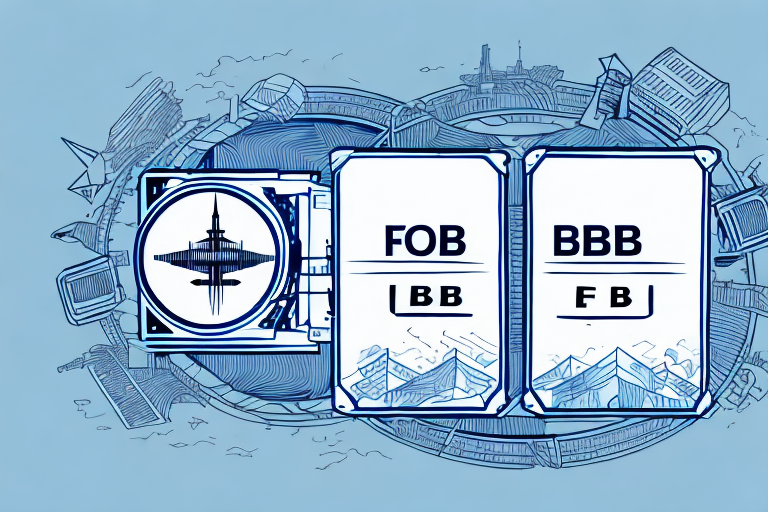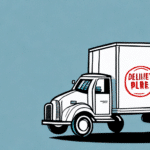Understanding FOB Terms in International Shipping
In the realm of international trade, comprehending the various shipping terms is crucial for smooth transactions. Among these, FOB (Free on Board) terms are widely used when dealing with overseas suppliers. This guide delves into the distinctions between FOB Factory and FOB Destination, exploring their advantages, disadvantages, and how to determine the best fit for your business needs.
FOB Factory: An Overview
FOB Factory signifies that the buyer assumes ownership of the goods once they are loaded at the supplier's factory or warehouse. Under this term, the supplier handles the loading of goods onto the carrier, while the buyer is responsible for arranging and financing transportation from the factory to the final destination. Additionally, the buyer manages customs clearance and incurs import duties.
FOB Factory is typically favored when the supplier needs to maintain stringent control over the loading process, ensuring goods are dispatched in optimal condition and punctually. It's important to note that FOB Factory is applicable primarily to sea or inland waterway transport. For air shipments, the relevant term is FCA (Free Carrier), where the supplier delivers goods to a designated carrier, transferring ownership upon handover.
FOB Destination: Comprehensive Responsibilities
FOB Destination means that the supplier retains responsibility for the goods until they reach the buyer’s specified location. This includes managing transportation, customs clearance, and import duties.
Opting for FOB Destination benefits buyers who prefer the supplier to handle the logistics, ensuring goods arrive safely and on schedule. Buyers can select preferred carriers and routes, potentially negotiating better shipping rates due to increased control over the shipping process.
However, FOB Destination carries risks such as potential delays or damages during transit, requiring the buyer to liaise with the supplier for resolution, which can be both time-consuming and costly, especially with international suppliers.
Key Differences Between FOB Factory and FOB Destination
The primary distinction lies in the transfer of ownership and responsibility. With FOB Factory, ownership passes to the buyer at the supplier's premises, making the buyer responsible for transportation and customs duties. In contrast, FOB Destination keeps ownership and responsibility with the supplier until delivery is complete at the buyer’s location.
This difference impacts risk allocation and costs. FOB Factory transfers transportation risks to the buyer early in the shipping process, potentially lowering costs if the buyer can secure favorable shipping rates. Conversely, FOB Destination may entail higher costs and longer delivery times, as the supplier manages the entire shipping process.
Advantages and Disadvantages
- FOB Factory Advantages:
- Buyer controls transportation logistics.
- Potential for lower shipping costs through negotiated rates.
- FOB Factory Disadvantages:
- Buyer assumes risk and responsibility for transportation and customs.
- FOB Destination Advantages:
- Supplier manages transportation and customs clearance.
- More convenience for the buyer.
- FOB Destination Disadvantages:
- Potential for higher costs and longer delivery times.
- Buyer may face challenges if goods are damaged or lost in transit.
The choice between FOB Factory and FOB Destination often hinges on the nature of the goods and the geographical locations of the buyer and supplier. For instance, perishable goods may benefit from FOB Destination to ensure timely and safe delivery, whereas non-perishable items might be more cost-effectively managed under FOB Factory terms.
Choosing the Right FOB Term for Your Business
Selecting between FOB Factory and FOB Destination requires a strategic assessment of your business priorities, including cost management, control over logistics, and risk tolerance. Consider factors such as:
- Value of Goods: High-value items may necessitate closer control over transportation.
- Transportation Distance: Longer distances might favor FOB Destination to mitigate risks associated with extended transit times.
- Customs Requirements: Complex import regulations may be easier to handle if managed by the supplier under FOB Destination.
Engaging in thorough negotiations with your supplier can help establish terms that align with both parties' expectations and operational capabilities.
Role of Incoterms in Shipping Agreements
Incoterms (International Commercial Terms) are standardized definitions published by the International Chamber of Commerce (ICC) that clarify the responsibilities of buyers and sellers in international transactions. They play a pivotal role in defining the logistics, costs, and risks associated with the shipment of goods.
Using the correct Incoterm, such as FOB, ensures that both parties have a clear understanding of their obligations, reducing the likelihood of disputes and enhancing the efficiency of international trade operations.
For more details on Incoterms, refer to the official ICC Incoterms website.
Best Practices for Managing FOB Shipments
Effective logistics management is essential when utilizing FOB Factory or FOB Destination terms. Implementing the following best practices can streamline operations and mitigate potential issues:
- Select Reliable Carriers: Partner with reputable shipping companies to ensure timely and safe delivery.
- Track Shipments: Utilize tracking technologies to monitor the progress of your shipments in real-time.
- Clear Communication: Maintain regular contact with suppliers and carriers to promptly address any concerns or changes.
- Insurance Coverage: Invest in adequate insurance to protect against potential losses or damages during transit.
Impact of Global Events on FOB Shipping Terms
Global events, such as the COVID-19 pandemic, have significantly influenced international trade and shipping dynamics. The pandemic caused widespread disruptions, including port closures, transportation delays, and increased shipping costs.
These challenges have underscored the importance of flexible and resilient shipping agreements. Businesses may need to adapt their FOB terms to accommodate changing circumstances, such as extending delivery timelines or adjusting responsibilities to navigate unforeseen disruptions.
Staying informed about global trade developments and maintaining open lines of communication with suppliers can help businesses effectively manage the impacts of such events.
Emerging Trends in FOB Shipping
The landscape of international shipping is continually evolving, with several trends shaping the future of FOB terms:
- Digitalization: The adoption of digital tools for tracking and managing shipments enhances transparency and efficiency.
- Sustainability: Increasing emphasis on environmentally friendly practices is influencing shipping choices and logistics strategies.
- Alternative Transportation Modes: Innovations in transportation, such as the use of drones or autonomous vehicles, are emerging as supplementary shipping methods.
Staying abreast of these trends enables businesses to optimize their shipping strategies and maintain a competitive edge in the global market.
Conclusion: Making Informed Shipping Decisions
Choosing the appropriate FOB term is a critical decision that impacts the efficiency, cost, and risk management of international shipping operations. By thoroughly understanding the distinctions between FOB Factory and FOB Destination, assessing your business needs, and staying informed about global trade trends, you can make strategic decisions that enhance your supply chain effectiveness.
For a comprehensive understanding of shipping terms and best practices, reference authoritative sources such as the International Chamber of Commerce and industry-leading publications.





















